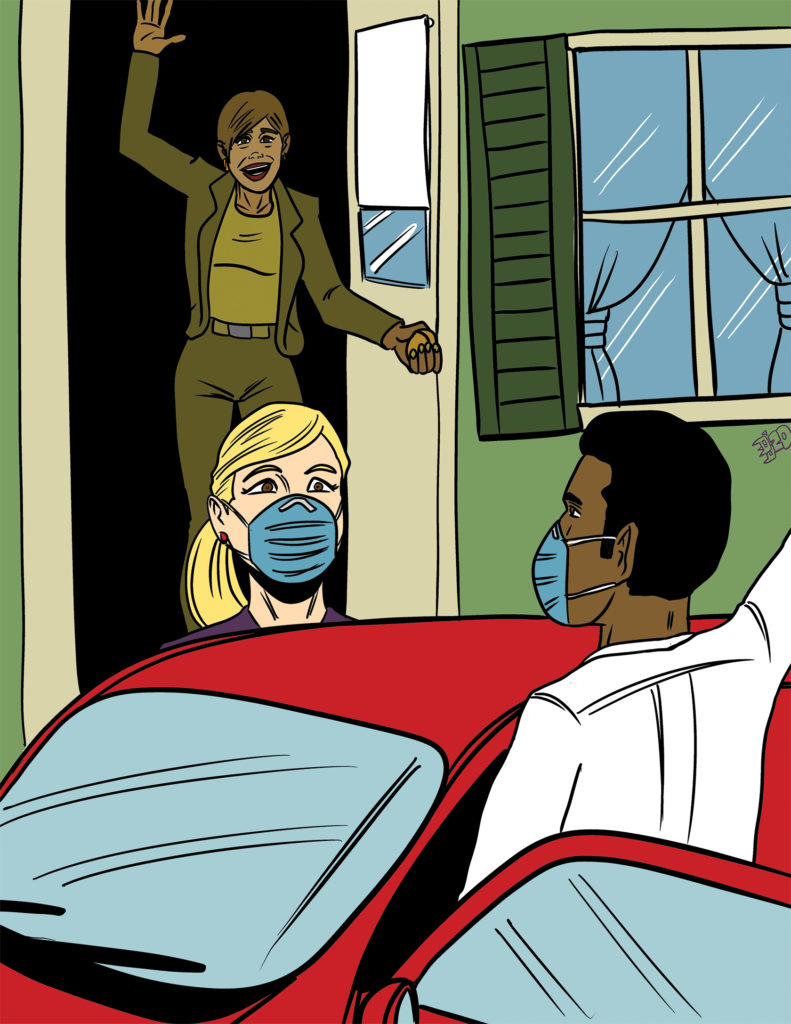
Politicians often challenge the accuracy of polls when the results fail to benefit their campaign. Polling results appear so magical that those reading the results can sometimes find it easy to believe the disgruntled politician. With a national sample size of only 604 African Americans, the African American Research Collaborative was able to determine the impact of COVID-19 on black voters across the nation, with a margin of error of only +/- 3.9.
With the presidential elections scheduled for November, the COVID-19 pandemic has disrupted normal social and commercial life. Until now, stories about black attitudes in America have been merely anecdotal. The biggest questions are whether blacks are paying sufficient attention to the crisis, whether they are abiding by the safety measures, and what is the COVID-19 impact on black politics.
The AARC COVID-19 poll conducted in early May found 92% of African Americans are following the news about the pandemic, with 62% paying very close attention. With considerable pressure building in the country to end the shutdown and open for business, 80% of blacks want to hold off until it is assured such actions are safe.
The poll found that in the meantime, blacks are following the required safety precautions. About 72% frequently wash their hands for at least 20 seconds, 90% always or usually maintain at least a six-foot distance away from others in public and 83% usually wear a mask when outside with others nearby.
Since wearing a mask is normally illegal, some blacks are concerned that they might be mistaken by the police as criminals. Consequently, about 25% of those 18 to 49 years of age report that they do not feel safe wearing a mask in public. Those 50 and older are less concerned, with only about 15% feeling unsafe.
The economic impact of COVID-19 has put a strain on black families: 36% have lost their job or had a cut in hours; 31% did not have enough food or grocery money; 28% have trouble paying for rent or the mortgage; and 15% have lost health insurance provided by their employer.
The damage to African Americans from COVID-19 has been extensive. Blacks are aware that effective responsiveness must come from government institutions. The highest ranking for failed responsiveness went to President Donald Trump, with negative rating of 80%. Responsiveness by the federal government was rated negatively by 59% of those polled, and city and state governments by 34% and 37%, respectively.
Donald Trump is perceived by 73% of those interviewed as “the single most dangerous threat to African Americans” because of his lack of concern over the damage inflicted by COVID-19. This attitude will undoubtedly influence the black voting results in the presidential election. The poll of registered voters indicates that 79% will vote for Joe Biden, only 11% will vote for Donald Trump, 8% are undecided and 2% did not disclose their preference.
It appears that 14% of black men planned to vote for Trump, with 73% for Biden, compared to only 8% of black women for Trump but 76% for Biden. The most significant political statistic is the estimated size of the turnout. According to registered voters, 67% are almost certain to vote, and 13% probably will, so that is a total of 80%, and another 11% are somewhat likely to show up.
One disturbing aspect is that 14% of voters have indicated that they are less likely to vote because of COVID-19-induced health concerns. However, 48% of registered voters indicated that they are more enthusiastic about the 2020 election than they were in 2016.
AARC in collaboration with the NAACP and the Equity Research and Innovation Center of the Yale School of Medicine have performed a significant public service by providing this insight on black attitudes.






